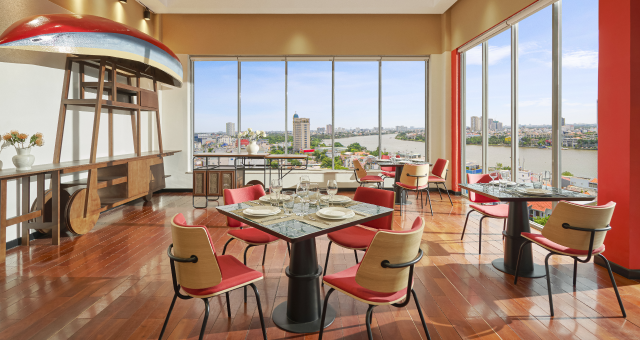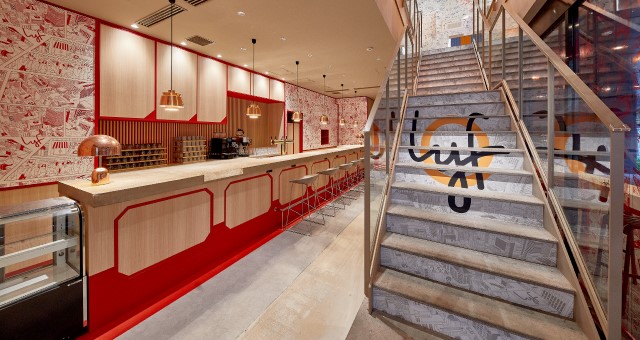Forty years on from the opening of its first hotel, The Ascott Singapore, in 1984, The Ascott Limited now has a presence in over 40 countries, with more than 940 properties – and is showing no signs of a slowdown.
The strategic acquisition of global serviced apartment provider, Oakwood Worldwide, in the second half of 2022, has propelled the company’s growth with over 20 new signings since the acquisition.
The Oakwood portfolio has grown by more than 20% post acquisition making it one of The Ascott Limited’s fastest growing global brands.
With almost 18,000 units to date, Oakwood is now in 48 cities globally, having entered new destinations including Busan in South Korea, Batam and Bali in Indonesia, Penang and Kota Kinabalu in Malaysia, Visakhapatnam, Chennai and Navi Mumbai in India, as well as Ha Long in Vietnam.
“With more operationally ready properties coming onstream at a faster pace, we are seeing immediate contribution of the Oakwood portfolio to Ascott’s recurring fee income; which is in line with our aim to double fee earnings to more than S$500 million by 2028,” said The Ascott Limited Chief Executive Officer, Kevin Goh.
Ascott will continue to pursue “transformative deals” to accelerate expansion and access new markets, according to Goh.
“The strategic benefits of inorganic expansion extend beyond incremental growth,” he said.
“They have empowered us to unlock economies of scale, streamline operations, and enhance overall competitiveness over the years.
“Coupled with our continued focus on organic signings of management and franchise contracts, we not only intend to keep pace with industry trends but to break new grounds and stay ahead, positioning Ascott as a global leader in hospitality.”
As an owner and operator, serviced residences has long remained an important part of The Ascott Limited’s portfolio, alongside its hotels and coliving properties through its selection of hospitality brands – Ascott, Citadines, Lyf, Quest, Somerset, The Crest Collection and The Unlimited Collection.
At a media briefing in Yokohama, The Ascott Limited’s Chief Financial and Sustainability Officer and Managing Director for Japan and Korea, Siew Kim Beh, told journalists that Asia Pacific continues to be an important market for its brands.
“While we have presence all over the world, about 80% of [our business] is in Asia Pacific,” she said.
“That’s also very exciting, because APAC is where we see a lot of growth in terms of travel and there is a lot of opportunity for us to tap into this growing market, while we continue to grow our presence in Europe, and also now in the US as well.”
‘Flex-hybrid’ model
Ascott’s ‘flex-hybrid’ model – catering to both long- and short-stay guests – has proven invaluable to the business, particularly during the pandemic, Siew Kim Beh explained.
“Long stay is on average 50% of our portfolio – which provides a very resilient income even during challenging times – then the other 50% can flex up to do short stay which will usually generate a higher ADR,” she said.
“This flex hybrid model gives us the ability to enhance returns for our owners, while providing that resilience of income. It allows us to be flexible in targeting different guests at different times; to pivot as the demands require and, most importantly, still provide a hospitality experience for our guests.”
Unlike a traditional hotel, Ascott operates under a low staff-to-room ratio, keeping operational costs lower.
“Our staff-to-room ratio is generally below one, so it’s a very efficient business model, with a very high operating margin, which is especially important in times like this where there is a huge labor shortage,” Siew Kim Beh said.
This is achieved through outsourcing of certain services such as housekeeping and focusing on the key touchpoints in the guest journey to ensure high guest satisfaction levels.
“For us, it’s about being relevant and not overdoing things,” said The Ascott Limited’s Country General Manager for Japan, Christian Baudat, told HM.
“We can plug in new operations into our existing structure, so we don’t need heavy overheads like finance, human resources or procurement.
“The other thing is multi skilling. Our associates are skilled in various departments and everybody’s very flexible. During more challenging periods, when our associates are hired by one entity, they might go to help out at another property.
“We’re all one family, and we help each other.”




